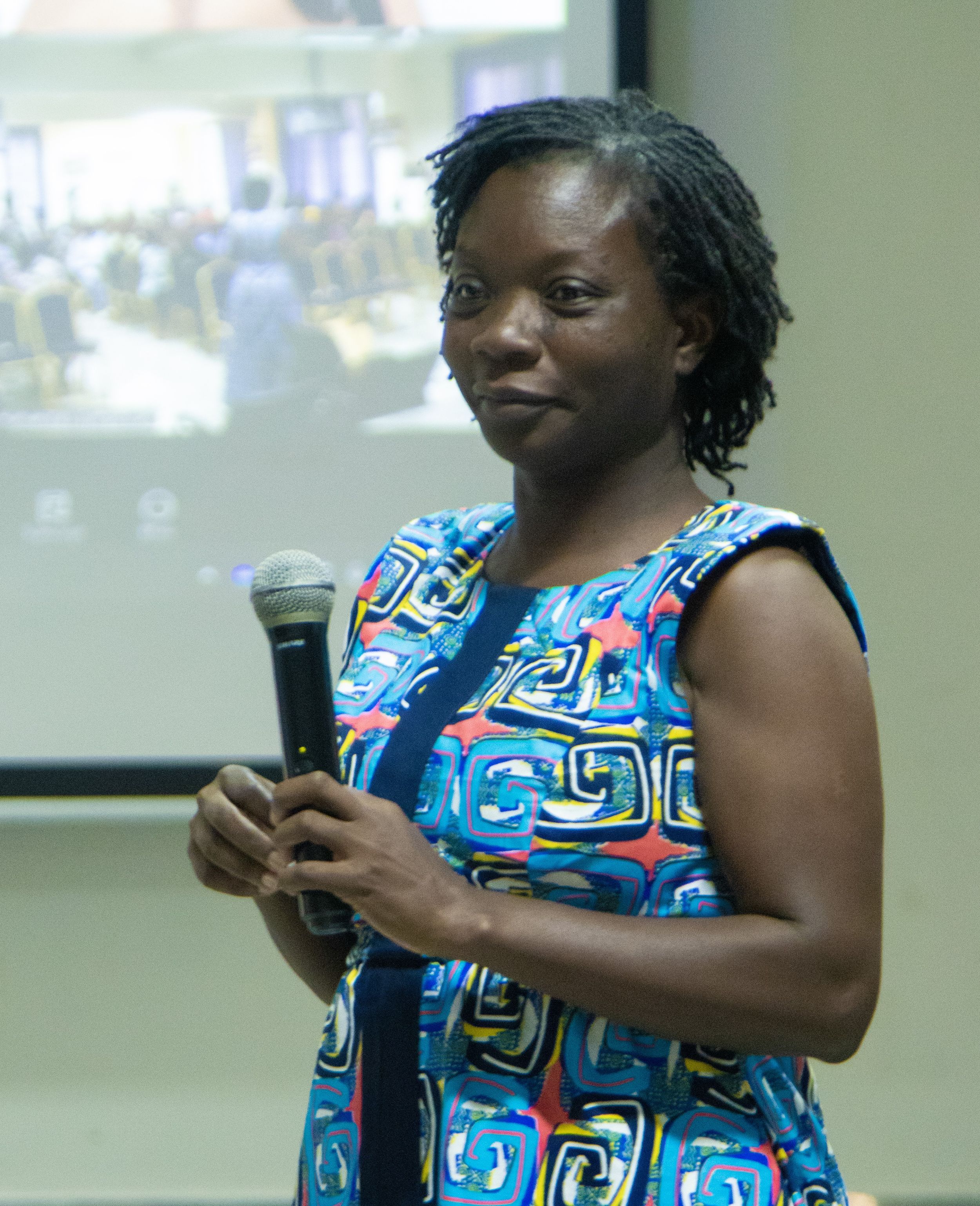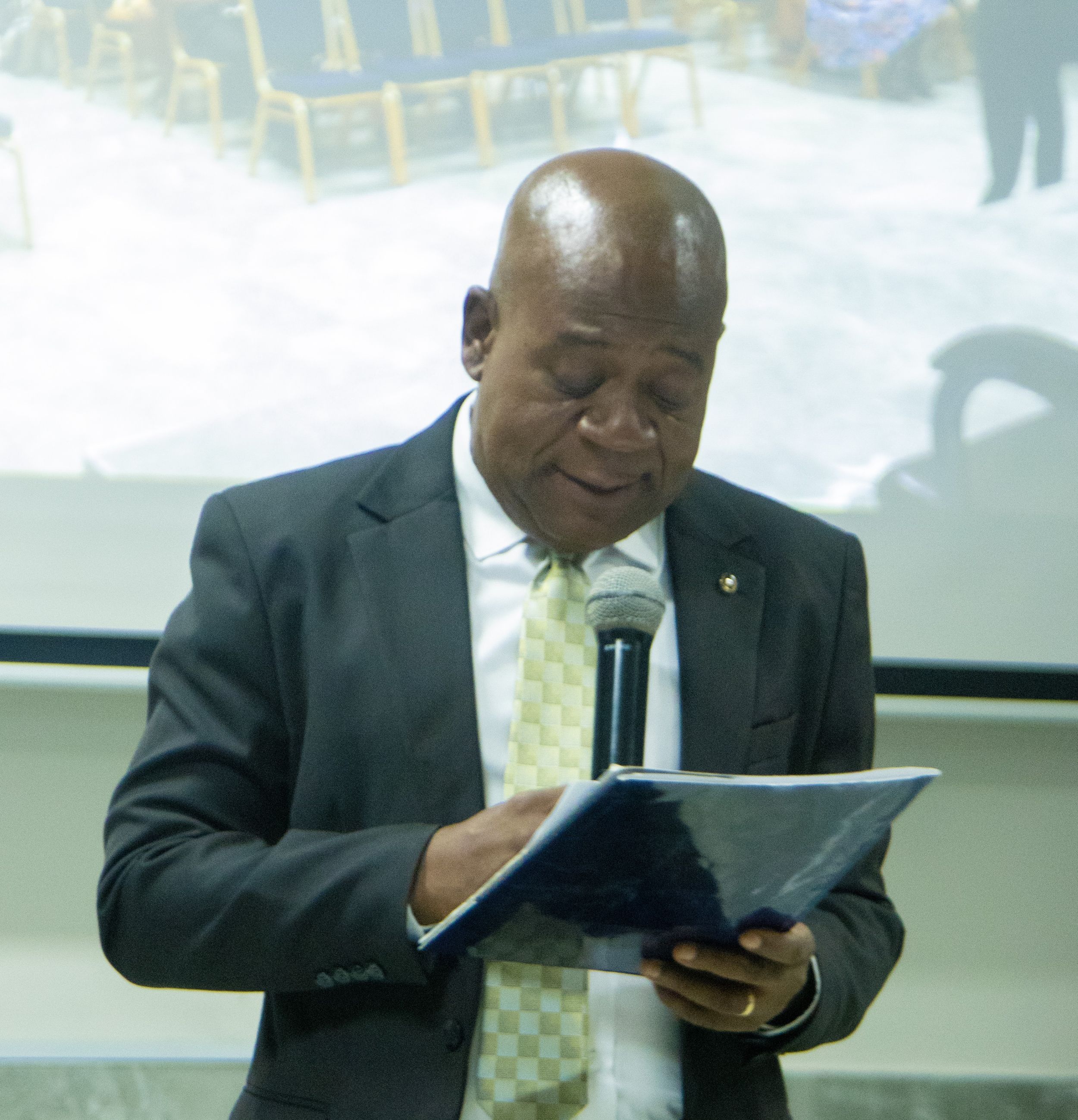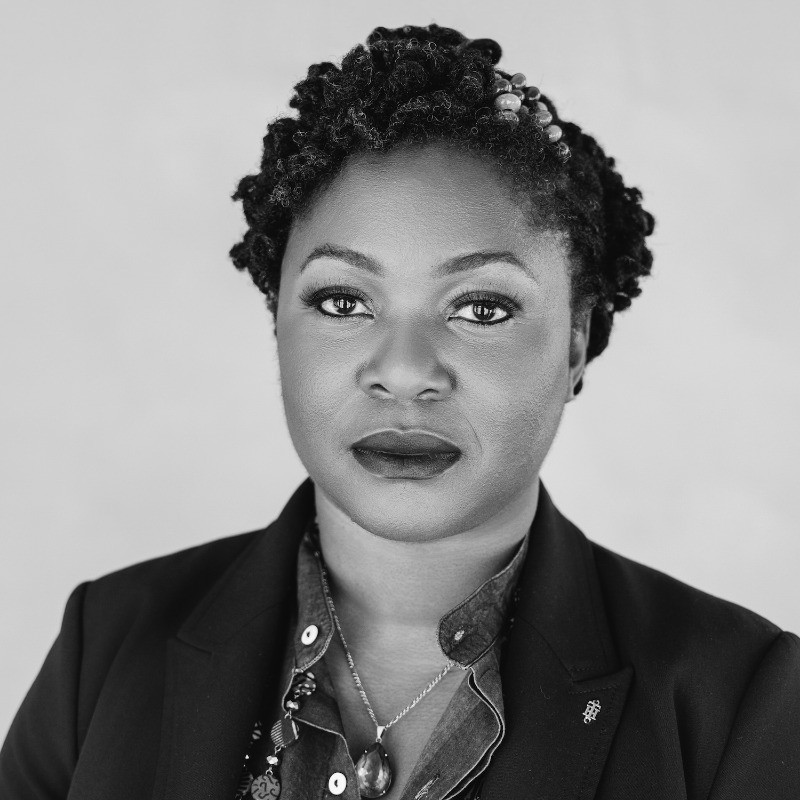The School of Information and Communication Studies (SICS), College of Education, University of Ghana, in collaboration with the University of Kansas (KU) and the College of Humanities, UG, has hosted the second edition of the African Digital Humanities (DH) Symposium. Held from 5th to 6th June, 2025 under the theme “Artificial Intelligence, Libraries and Digital Preservation in Africa,” the symposium brought together academics, librarians and researchers from across the continent and beyond to interrogate the role of AI and digital technologies in African knowledge systems.

Participants having a discussion during the workshop

Brian Rosenblum, Co-Director, KU’s Institute for Digital Research in Humanities, interacting with participants

Professor Carol Smith, Dean of KU Libraries
The two-day symposium provided a robust platform for interdisciplinary dialogue, critical inquiry and collaborative exchange on how digital humanities is transforming research, archiving and access in African contexts. Preceding the symposium was a special workshop on 4th June, 2025 tailored for librarians, co-hosted by Professor Carol Smith, Dean of KU Libraries and Brian Rosenblum, Founding Co-Director of KU’s Institute for Digital Research in Humanities. The session examined global and local challenges faced by libraries and underscored the importance of innovation and equitable partnerships in knowledge production.

Professor Akosua Darkwah, Dean, School of Information and Communication Studies
Opening the conference, Professor Akosua Darkwah, Dean of the School of Information and Communication Studies (SICS), welcomed participants and stressed the value of interdisciplinary dialogue in advancing innovation. “It is only through collaboration across disciplines that we can fully harness the power of technology,” she remarked, urging participants to critique and challenge ideas shared during the symposium.

Professor Samuel Nii Ardey Codjoe, Provost, College of Education
In his remarks, Professor Samuel Nii Ardey Codjoe, Provost of the College of Education, lauded the University of Ghana’s emerging leadership in digital humanities research. “Our collaboration with the University of Kansas reflects our commitment to research excellence and inclusive knowledge-sharing,” he noted, referencing the priority 2 and 4 of the University’s 2024–2029 Strategic Plan which highlight impactful research as well as engagement and partnerships. “This is not just about the digital. It’s about ensuring our knowledge systems evolve in ways that serve African societies,” he remarked.

Prof. Ademide Adelusi-Adeluyi, Keynote Speaker
The first day featured compelling keynote addresses by Prof. Ademide Adelusi-Adeluyi, Howard University, United States of America and Dr. Karen Ijumba, Senior Researcher, Open Restitution Africa, who demonstrated the power of digital tools in historical recovery and restitution. Prof. Adelusi-Adeluyi shared her work on digitally mapping 19th century Lagos to reconstruct urban histories, while Ijumba delved into the complexities of documenting restitution efforts across Africa, both underscoring the value of DH methodologies in shaping nuanced African narratives.
A panel discussion on “Digitalising Memory and Expanding Access” showcased digitisation projects from Nigeria and Ghana. Presenters spotlighted efforts to preserve Nigeria’s cultural heritage, including the digitalisation of the Black Orpheus literary journal and historical newspapers and highlighted major initiatives at the University of Ghana, such as the J. H. Kwabena Nketia Archive, the Adu Boahen Archive and the Making African Academic Resources Available (MAARA) project.
Another engaging session saw Zimbabwean scholar Tinashe Mushakavanhu present his crowdsourced biography project on iconic writer Dambudzo Marechera, which invites public contributions to create a participatory archive. Meanwhile, Dr. Ashley Sanders addressed themes of restorative data justice through her work on recovering the presence of Algerian women in archival records. Professor Nicklas Hållén, a metadata specialist, cautioned against uncritical data practices, noting that digital systems risk perpetuating colonial logics if not deliberately reimagined.

Panellists who presented on the Black Orpheus project answering questions during Q&A Session
The third panel focused exclusively on OlongoAfrica’s initiative to digitise the Black Orpheus corpus and document its enduring legacy. Contributors Seun Aili and Molara Wood reflected on the philosophy behind the archival project, while Yadichinma Ukoha-Kalu and Ebunoluwa Adepoju shared their experiences as Black Orpheus Fellows engaged in contemporary archival storytelling.
Day two turned the spotlight on future directions, including discussions on digital humanities in Ethiopia and Ghana and panels interrogating the ethics, algorithms and epistemologies of AI in Africa. Institutions such as the Consortium of Academic and Research Libraries in Ghana (CARLIGH) and the Kenyan virtual library also came under review as models for digital access and collaboration.
The symposium closed with a rousing call to action: African scholars and institutions must take proactive ownership of how AI is integrated into knowledge management. Participants were urged to push for inclusive design, foster pan-African collaborations, and document digital projects that reflect local values and lived realities.
